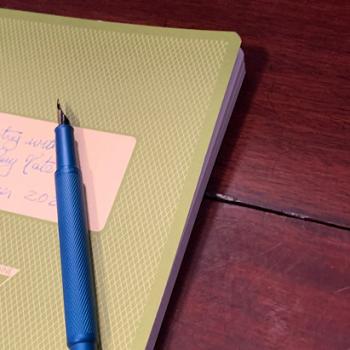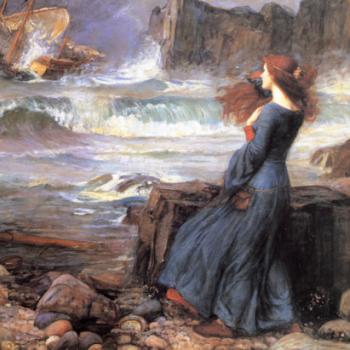A child says ‘Thank God for my good dinner’. What can I say at seventy-five? ‘Thank God for my good life, and for all the love that has been given to me.’
When you are given women writers, excellent writers, you are not generally given the best selling writer who is a woman, because Agatha Christie, mayhaps the best selling author of all time, somehow (usually) does not count as a woman.
 She is too happy or too readable or too Tory.
She is too happy or too readable or too Tory.
Agatha Christie was the sort of author my grandmother, my wife, and my daughters read. She was also the sort of author my grandfather, my dad, and my sons read. One daughter insisted to me she was great.
That made me pause.
We had a laugh when another mystery author was proclaimed as the new Agatha Christie and not just the new Christie but a writer so good that soon Christie would be the new . . . And I cannot quite remember how to spell her name.
Safe to say she (like all the hims) is not the new Agatha Christie, just an older in a long series of not-the-next-
The time is long past when people who love to read should admit: she is a great writer. She endures: nobody makes the era between World War I and World War II more comprehensible than Agatha Christie, even if she does not say what we wish she would say about it.
She was better at selling books, the books she wanted to write, than anybody not in the Bible and named Shakepseare, but, the horror, happy to use the “he” as the default third person pronoun. This is not acceptable to many. How could she write this about herself:
We never know the whole man, though sometimes, in quick flashes, we know the true man. I think, myself, that one’s memories represent those moments which, insignificant as they may seem, nevertheless represent the inner self and oneself as most really oneself.
How dare she be so jolly without even a ze?
She remained an Anglican, did not take communion because she suffered a divorce, but presented a worldview overwhelmingly Christian. Agatha Christie is not Christian enough for the fundamentalists, but then the fundamentalists do not control much of anything in the English speaking world.
The whole Agatha, so I believe, is known only to God.
Agatha Christie is deeply Christian (understand Marple and Poirot without Christian morality and civilization!) and moralistic, so those who normally promote the most obscure writers for the secular cause ignore her writing.
She keeps a play running for record lengths, but the play, Mousetrap, while brilliant, gets little respect except at the box office. It is merely entertaining and clever to audiences for seventy years.
This is a play I have seen and it is agreeable, merely that:
Looking back I feel that our house was truly a happy house. That was largely due to my father, for my father was a very agreeable man. The quality of agreeableness Is not much stressed nowadays. People tend to ask if a man is clever, industrious, if he contributes to the well-being of the community, if he ‘counts’ in the scheme of things. But Charles Dickens puts the matter delightfully in David Copperfield: ‘Is your brother an agreeable man, Peggotty?’ I enquired cautiously. ‘Oh what an agreeable man he is!’ exclaimed Peggotty. Ask yourself that question about most of your friends and acquaintances, and you will perhaps be surprised at how seldom your answer will be the same as Peggotty’s. By modern standards my father would probably not be approved of.
Agatha Christie is the most agreeable of authors and so if you refuse for even a moment to be jolly she is a nuisance.
Mostly of course Christie could write and is still readable. She has a vocabulary and complexity of sentence structure challenging to most graduate English majors today, but if you can read English at a (1930’s) an eighth grade level, she sings. Her plots are clever, her characters memorable (easily the equal of Doyle).
What is the complaint?
Christie was womanly, brilliant, conservative, and cosmopolitan. If you think this cannot be done, read And Then There Was None.
We should love and learn from any author who can say this about time:
Life seems to me to consist of three parts: the absorbing and usually enjoyable present which rushes on from minute to minute with fatal speed; the future, dim and uncertain, for which one can make any number of interesting plans, the wilder and more improbable the better, since–as nothing will turn out as you expect it to do–you might as well have the fun of planning anyway; and thirdly, the past, the memories and realities that are the bedrock of one’s present life, brought back suddenly by a scent, the shape of a hill, an old song–some triviality that makes one suddenly say ‘I remember…with a peculiar and quite unexplainable pleasure.













